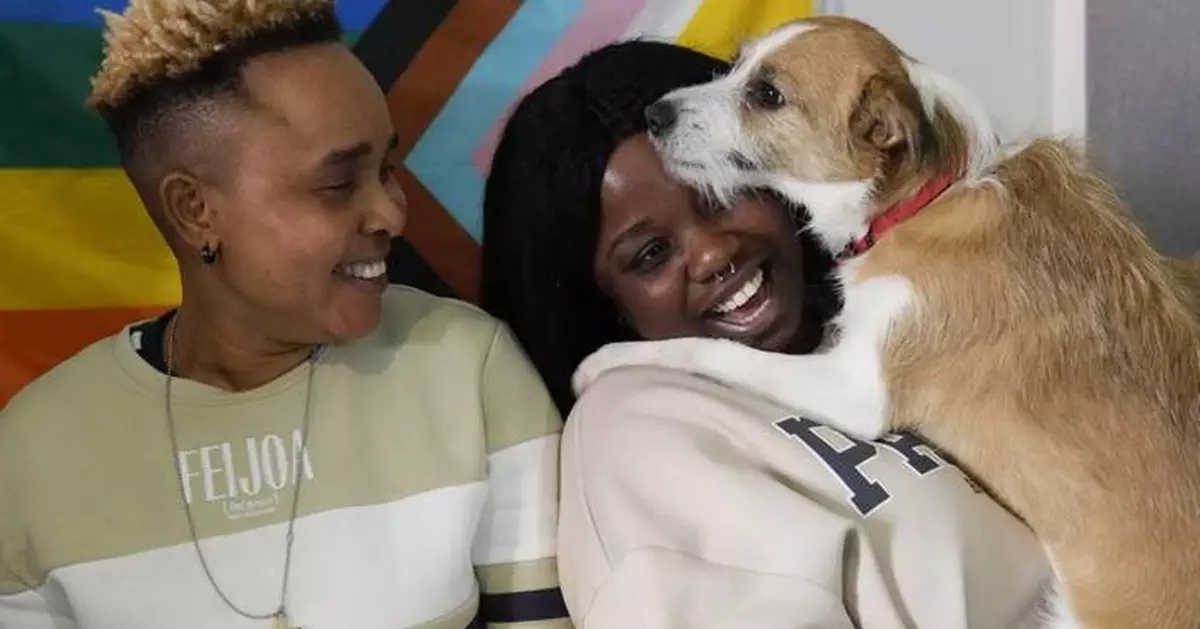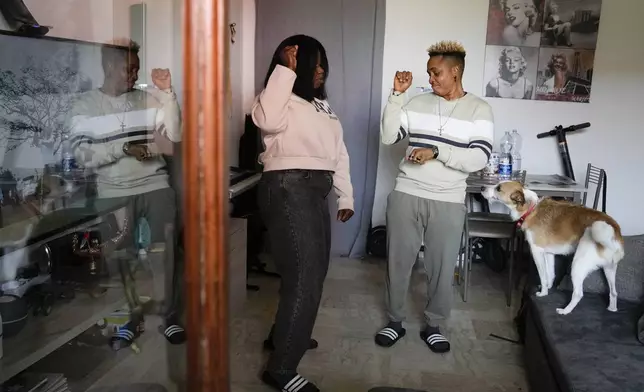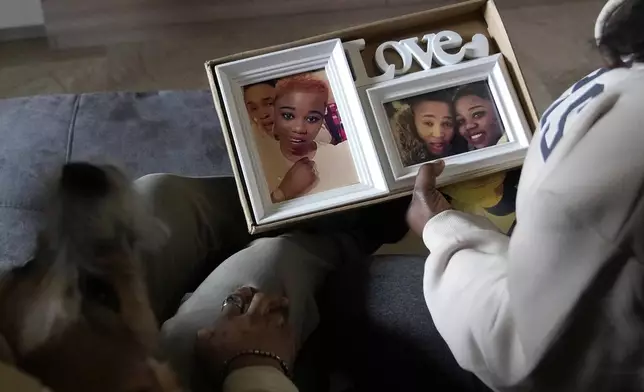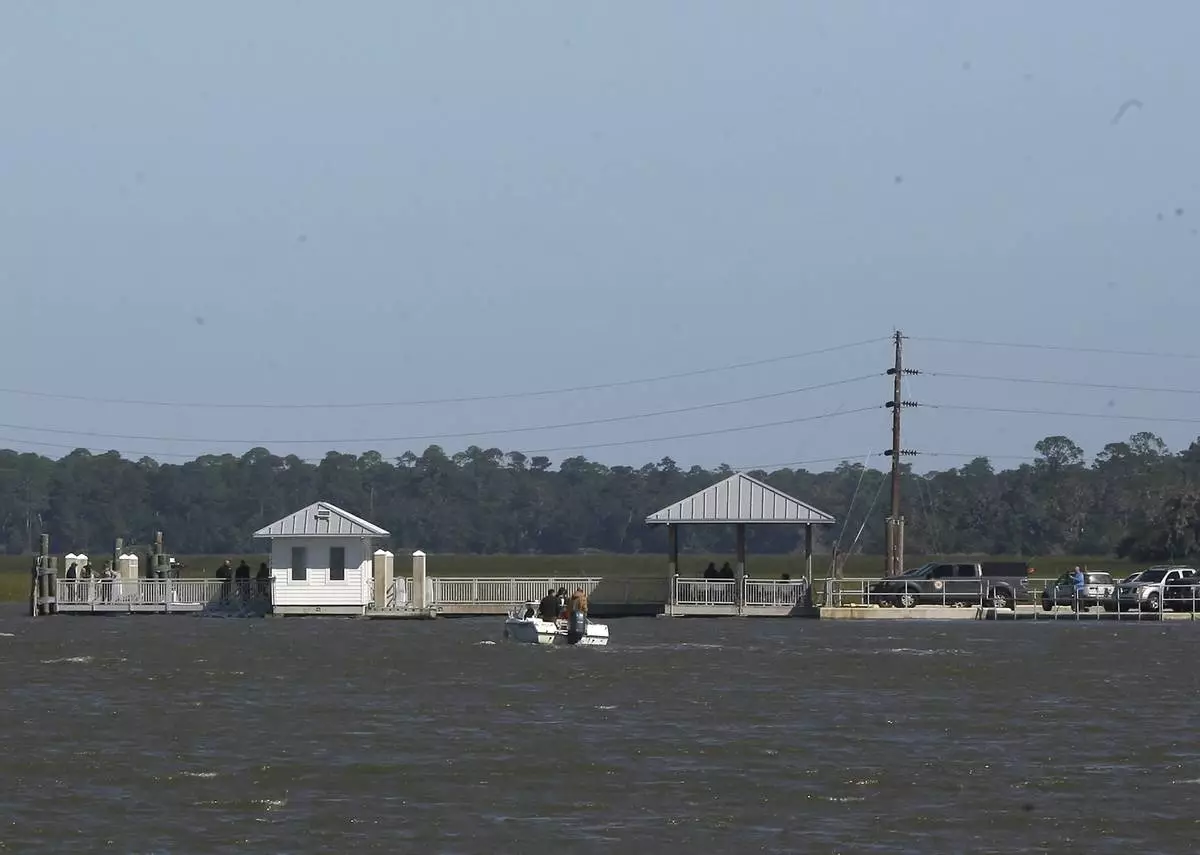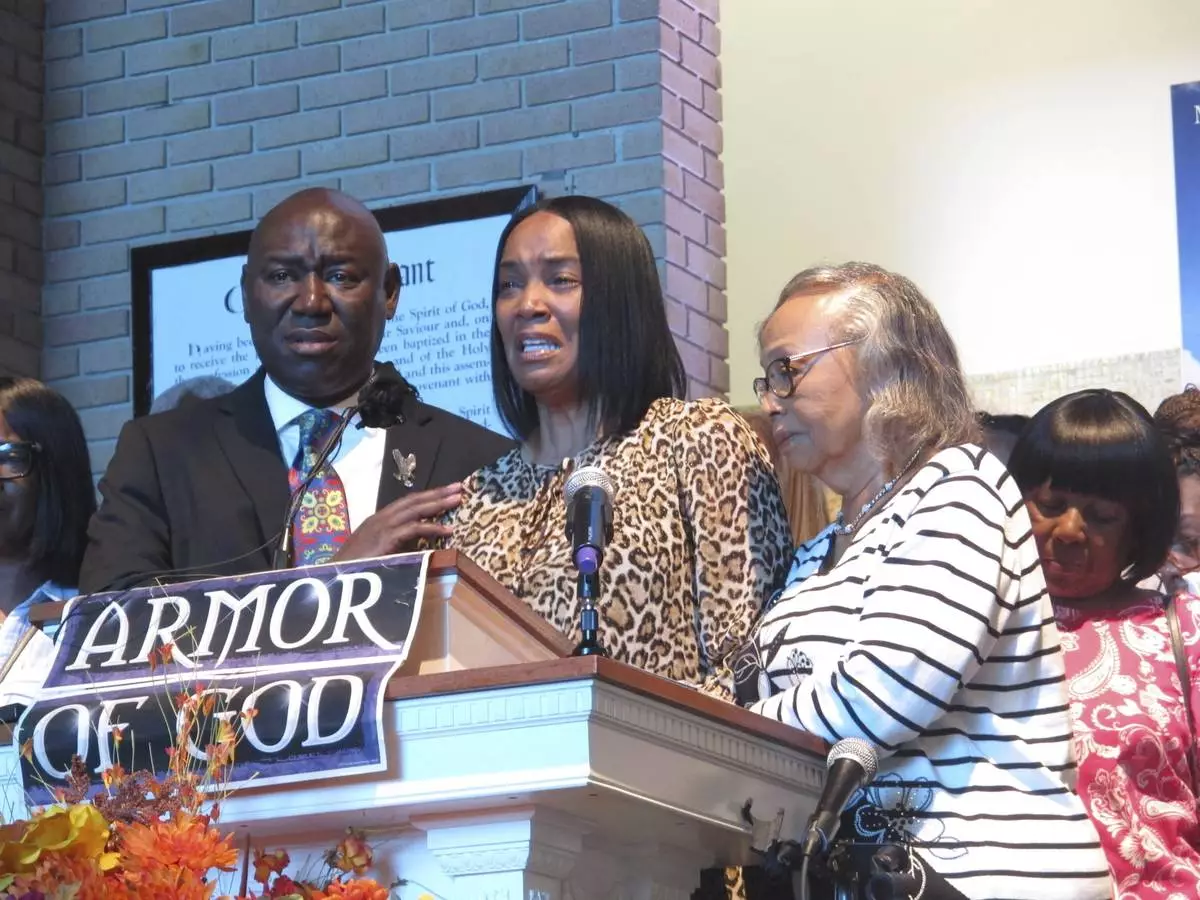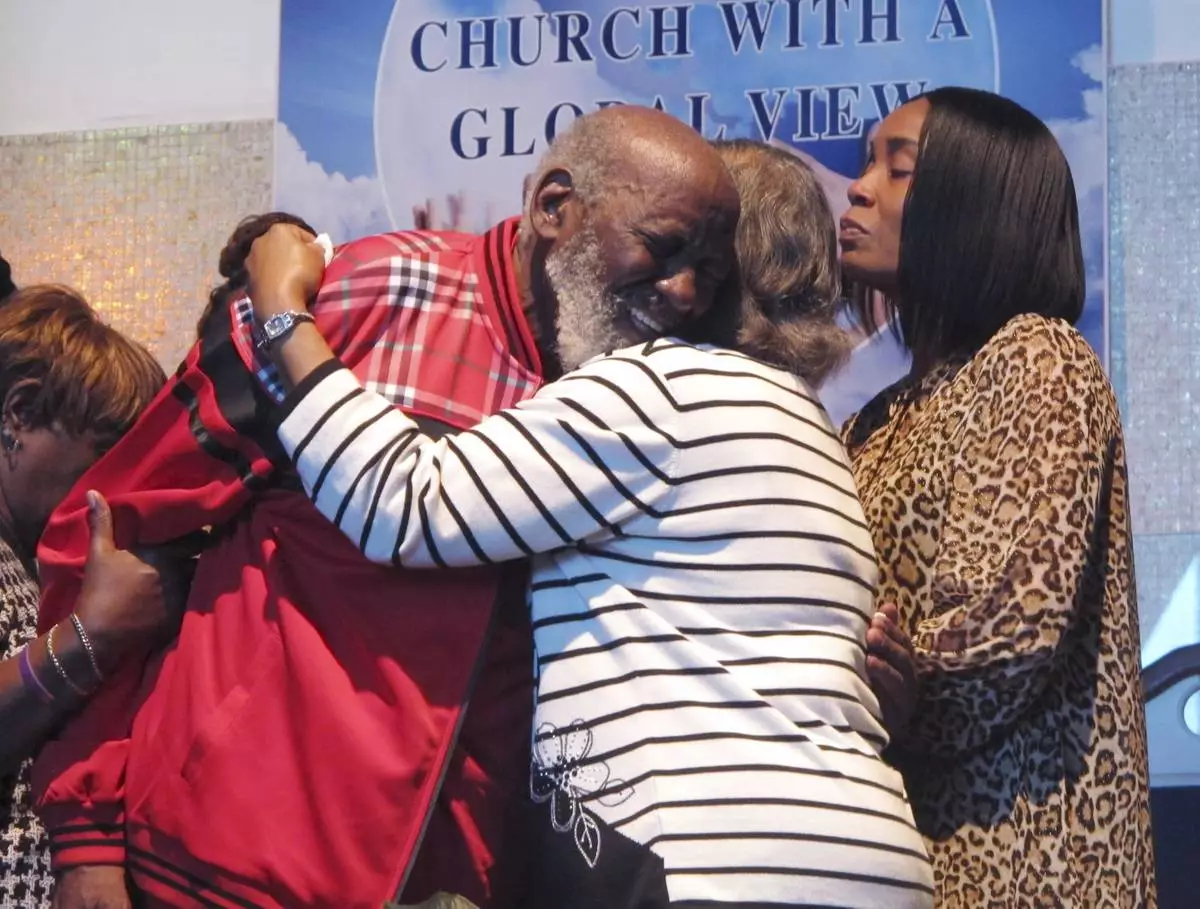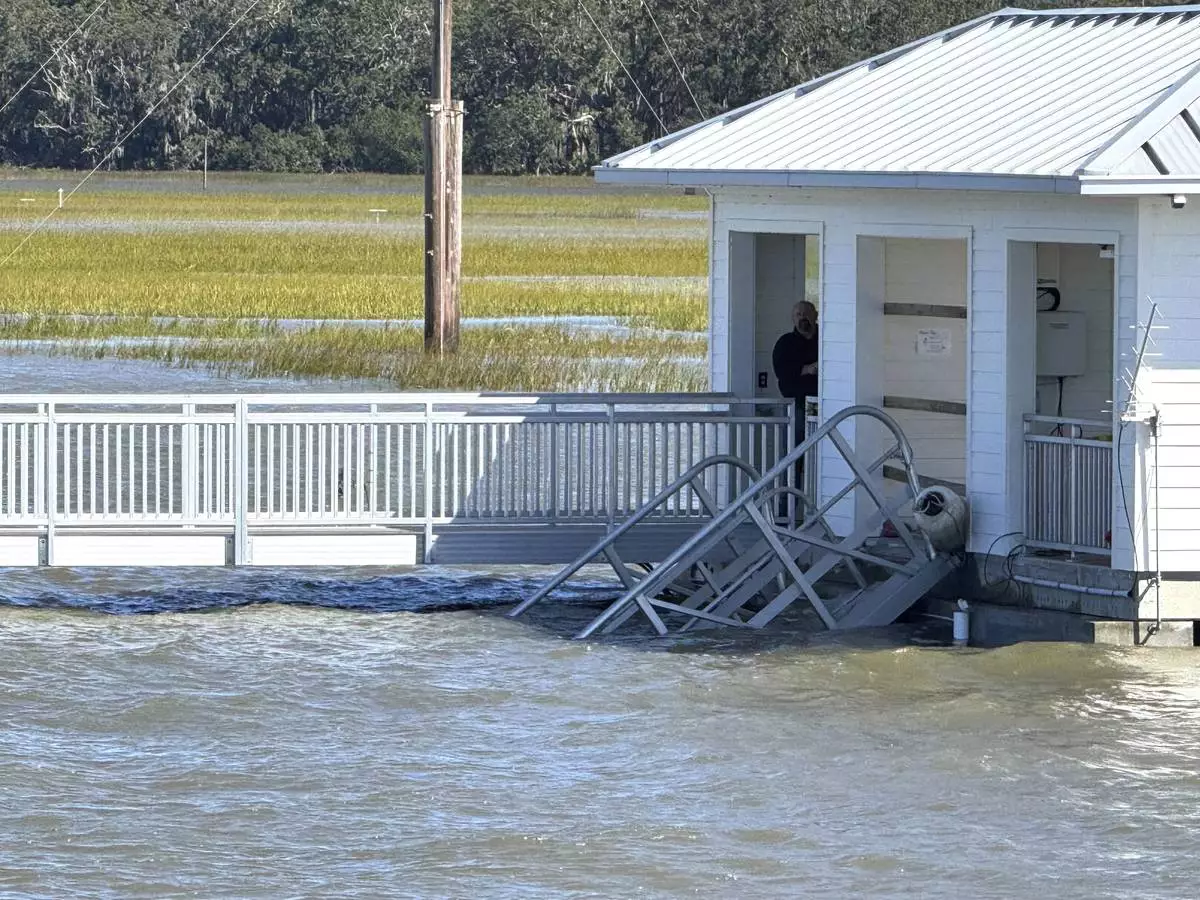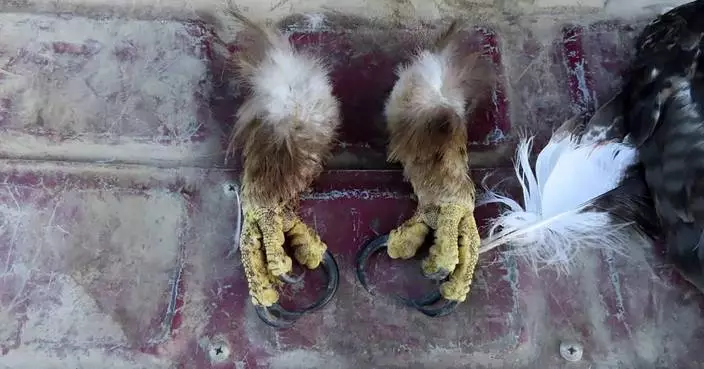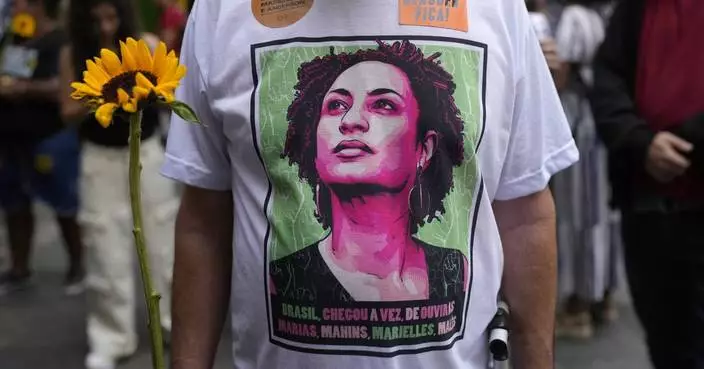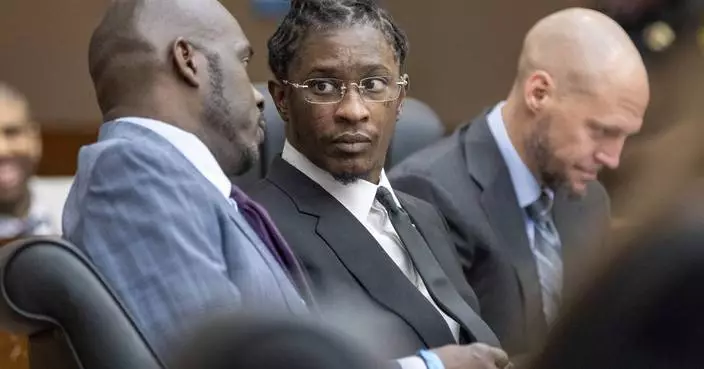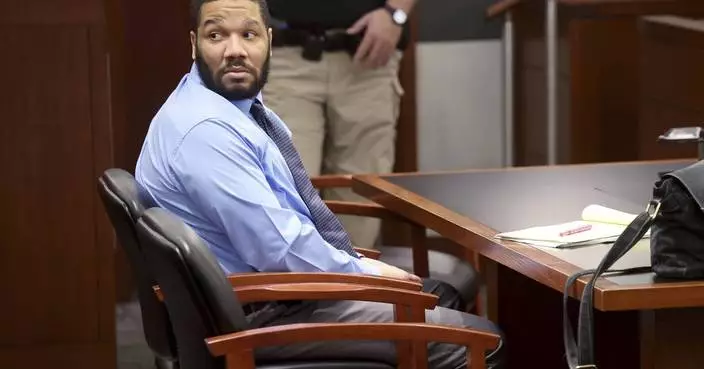RIETI, Italy (AP) — Ella Anthony knew it was time to leave her native Nigeria when she escaped an abusive, forced marriage only to face angry relatives who threatened to turn her in to police because she was gay.
Since Nigeria criminalizes same-sex relationships, Anthony fled a possible prison term and headed with her partner to Libya in 2014 and then Italy, where they both won asylum. Their claim? That they had a well-founded fear of anti-LGBTQ+ persecution back home.
While many of the hundreds of thousands of migrants who arrive in Italy from Africa and the Mideast are escaping war, conflict and poverty, an increasing number are fleeing possible prison terms and death sentences in their home countries because of their sexual orientation or gender identity, advocates say.
And despite huge obstacles to win asylum on LGBTQ+ grounds, Anthony and her partner, Doris Ezuruike Chinonso. are proof that it can be done, even if the challenges remain significant for so-called “rainbow refugees” like them.
“Certainly life here in Italy isn’t 100% what we want. But let’s say it’s 80% better than in my country,” Chinonso, 34, said with Anthony by her side at their home in Rieti, north of Rome. In Nigeria, “if you’re lucky you end up prison. If you’re not lucky, they kill you,” she said.
“Here you can live as you like,” she said.
Most European countries don’t keep statistics on the number of migrants who claim anti-LGBTQ+ persecution as a reason for seeking refugee protection under international law. But non-governmental organizations that track the phenomenon say the numbers are rising as countries pass or toughen anti-homosexuality laws — a trend being highlighted on Friday's observance of the International Day Against Homophobia, Biphobia and Transphobia.
To date, more than 60 countries have anti-LGBTQ+ laws on the books, most of them in Africa, the Middle East and parts of Asia.
“The ultimate result is people trying to flee these countries to find safe haven elsewhere,” said Kimahli Powell, chief executive of Rainbow Railroad, which provides financial, legal and logistical support to LGBTQ+ people needing asylum assistance.
In an interview, Powell said his organization had received about 15,000 requests for assistance last year, up from some 9,500 the year before. One-tenth of those 2023 requests, or about 1,500, came from Uganda, which passed an anti-homosexuality law that year that allows the death penalty for “aggravated homosexuality,” and up to 14 years in prison for “attempted aggravated homosexuality.”
Nigeria also criminalizes consensual same-sex relations between adults and the public display of affection between same-sex couples, as well as restricting the work of groups that advocate for gay people and their rights, according to Human Rights Watch. In regions of Nigeria where Sharia law is in force, LGBTQ+ people can face up to 14 years in prison or the death penalty.
Anthony, 37, said it was precisely the threat of prison that compelled her to leave. She said her family had sold her into marriage, but that she left the relationship because her husband repeatedly abused her. When she returned home, her brother and uncles threatened to turn her into police because she was gay. The fear and alienation drove her first to attempt suicide, and then take up a trafficker’s offer to pay for passage to Europe.
“At a certain point, I couldn’t take all these sufferings,” Anthony said through tears. “When this man told me that I should abandon the village, I immediately accepted.”
After arriving in Libya, Anthony and Chinonso paid traffickers for the risky boat trip across the Mediterranean Sea to Italy, where they both claimed asylum as a member of a group – LGBTQ+ people – who faced persecution in Nigeria. According to refugee norms, applicants for asylum can be granted international protection based on being a “member of a particular social group.”
But the process is by no means easy, straightforward or guaranteed. Privacy concerns limit the types of questions about sexual orientation that migrants can be asked during the asylum interview process. Social taboos and a reluctance to openly identify as gay or transgender mean some migrants might not volunteer the information immediately. Ignorance on the part of asylum interviewers about anti-gay laws in countries of origin can result in unsuccessful claims, according to the EU Agency for Asylum, which helps EU countries implement asylum norms.
As a result, no comprehensive data exists about how many migrants seek or win asylum in the EU on LGBTQ+ grounds. Based on estimates reported by NGOs working with would-be refugees, the numbers in individual EU countries ranged from two to three in Poland in 2016 to 500 in Finland from 2015-2017 and 80 in Italy from 2012-2017, according to a 2017 report by the EU Agency for Fundamental Rights.
An EU directive grants special protection for people made vulnerable due to sexual discrimination, prescribing “special procedural guarantees” in countries that receive them. However, it doesn’t specify what those guarantees involve and implementation is uneven. As a result, LGBTQ+ asylum seekers don’t always find protected environments once in the EU.
“We’re talking about people who are unfortunately victims of a double stigma: being a migrant, and being members of the LGBTQIA+ community,” said lawyer Marina De Stradis.
Even within Italy, the options vary widely from region to region, with the better-funded north offering more services than the less-developed south. In the capital Rome, there are only 10 beds specifically designated for LGBTQ+ migrants, said Antonella Ugirashebuja, an activist with the Arcigay association.
She said the lack of special protections often impacts female migrants more negatively than male, and can be especially dangerous for lesbians.
“Lesbians leaving Africa often, or more frequently, end up in prostitution and sexual exploitation networks because they lack (economic) support from their families,” she said. “The family considers them people to be pushed away, to be rejected ... Especially in countries where this is punishable by law.”
Anthony and Chinonso consider themselves lucky: They live in a neat flat in Rieti with their dog Paddy, and dream of starting a family even if Italy doesn’t allow gay marriage.
Chinonso, who was studying medicine in Nigeria, is now a social and health worker. Anthony works at the deli counter in a Carrefour supermarket in Rome. She would have liked to have been able to continue working as a film editor, but is happy.
“It gave me the opportunity to grow,” she said.
AP journalist Nicole Winfield in Rome contributed to this report.
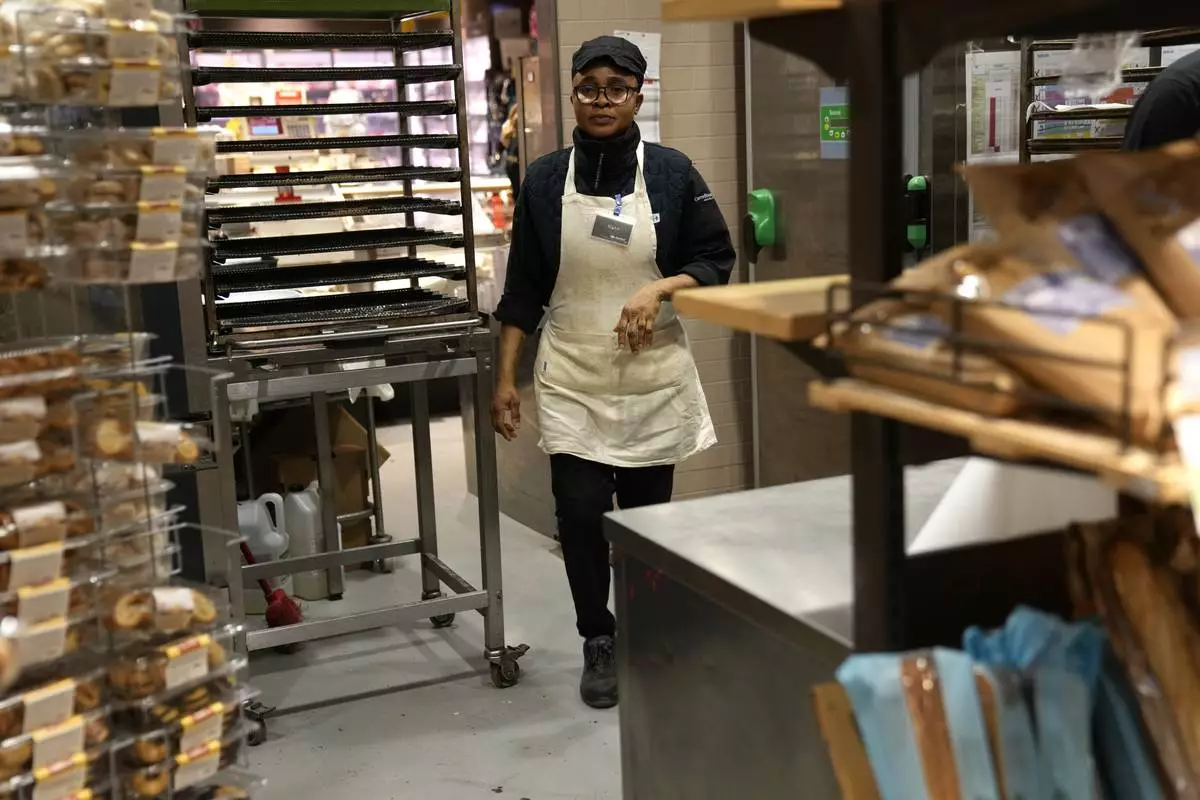
Ella Anthony smiles during an interview in the supermarket where she works, in Rome, Tuesday, March 26, 2024. Knowing that she faced a possible prison term since Nigeria criminalizes same-sex relationships, Anthony fled with her partner to Libya in 2014 and then Italy, where they both won asylum. Their claim? That they had a well-founded fear of anti-LGBTQ+ persecution back home. (AP Photo/Alessandra Tarantino)
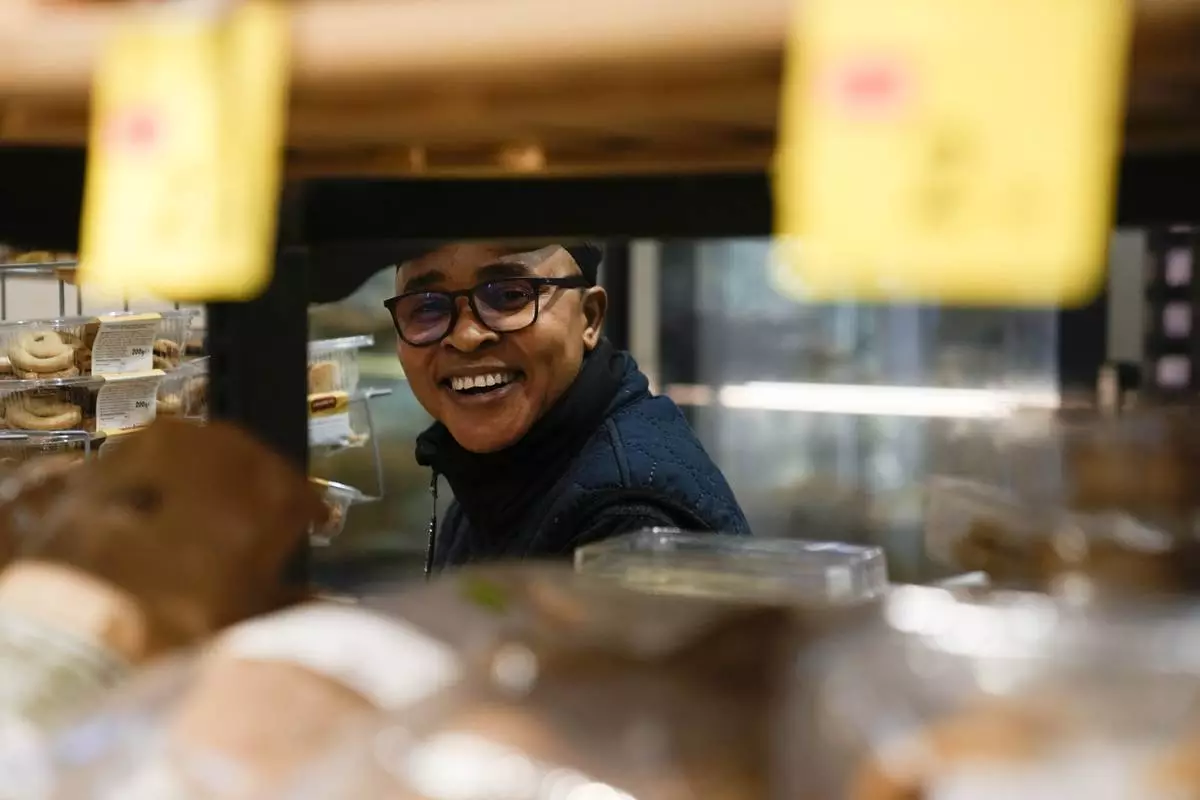
Ella Anthony smiles during an interview in the supermarket where she works, in Rome, Tuesday, March 26, 2024. Knowing that she faced a possible prison term since Nigeria criminalizes same-sex relationships, Anthony fled with her partner to Libya in 2014 and then Italy, where they both won asylum. Their claim? That they had a well-founded fear of anti-LGBTQ+ persecution back home. (AP Photo/Alessandra Tarantino)
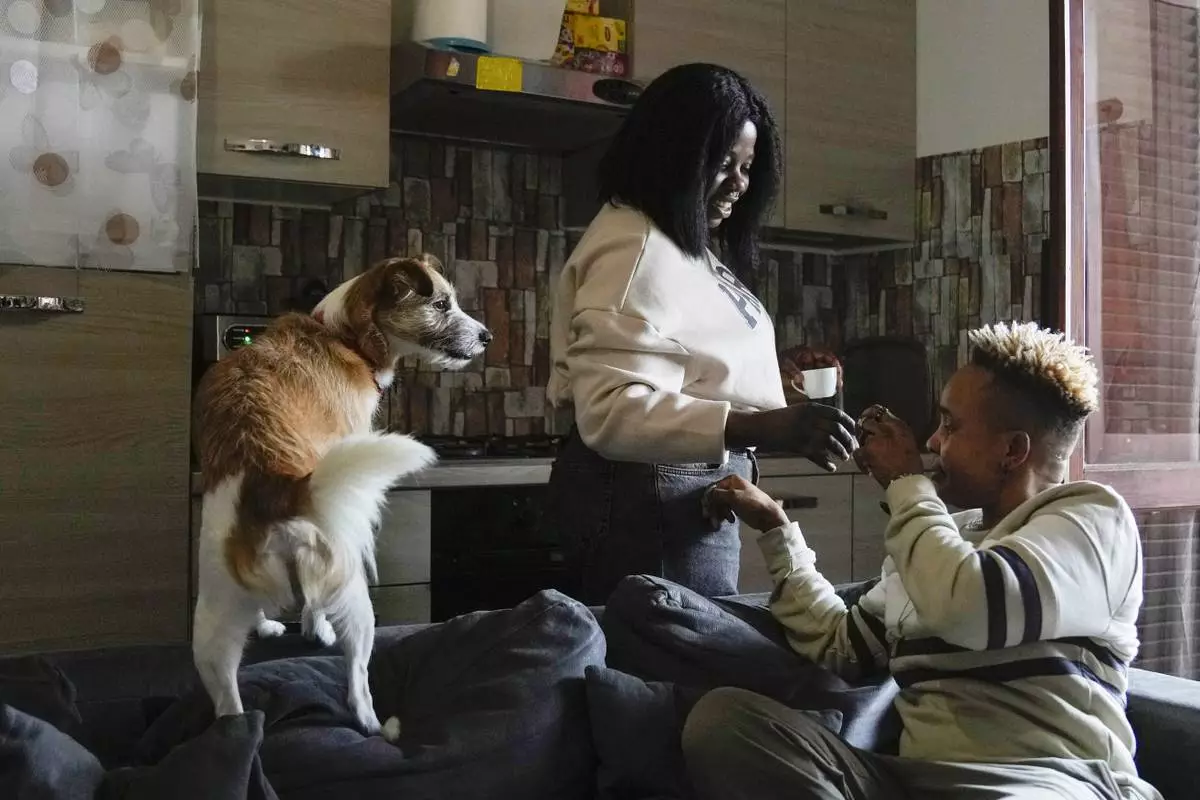
Ella Anthony, right , and her partner Doris Ezuruike Chinons, flanked by their dog Paddy, have a coffee during an interview in their house in Passo Corese, near Rome, Monday, March 11, 2024. Knowing that she faced a possible prison term since Nigeria criminalizes same-sex relationships, Anthony fled with her partner to Libya in 2014 and then Italy, where they both won asylum. Their claim? That they had a well-founded fear of anti-LGBTQ+ persecution back home. (AP Photo/Alessandra Tarantino)

Ella Anthony, right, and her partner Doris Ezuruike Chinons, dance in their house after an interview in their house in Passo Corese, near Rome, Monday, March 11, 2024. Knowing that she faced a possible prison term since Nigeria criminalizes same-sex relationships, Anthony fled with her partner to Libya in 2014 and then Italy, where they both won asylum. Their claim? That they had a well-founded fear of anti-LGBTQ+ persecution back home. (AP Photo/Alessandra Tarantino)
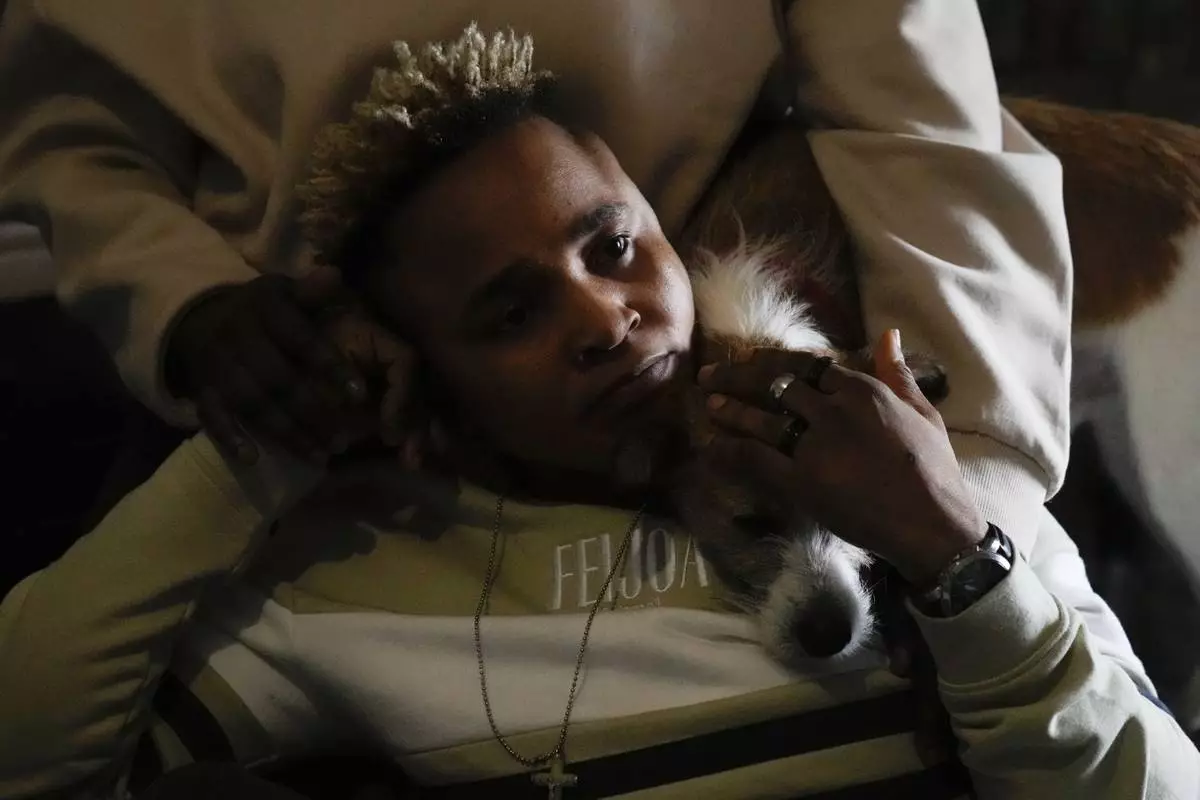
Ella Anthony, is hugged by her partner Doris Ezuruike Chinons during an interview in their house in Passo Corese, near Rome, Monday, March 11, 2024. Knowing that she faced a possible prison term since Nigeria criminalizes same-sex relationships, Anthony fled with her partner to Libya in 2014 and then Italy, where they both won asylum. Their claim? That they had a well-founded fear of anti-LGBTQ+ persecution back home. (AP Photo/Alessandra Tarantino)

Ella Anthony and her partner Doris Ezuruike Chinons show photos of themselves during an interview in their house in Passo Corese, near Rome, Monday, March 11, 2024. Knowing that she faced a possible prison term since Nigeria criminalizes same-sex relationships, Anthony fled with her partner to Libya in 2014 and then Italy, where they both won asylum. Their claim? That they had a well-founded fear of anti-LGBTQ+ persecution back home. (AP Photo/Alessandra Tarantino)
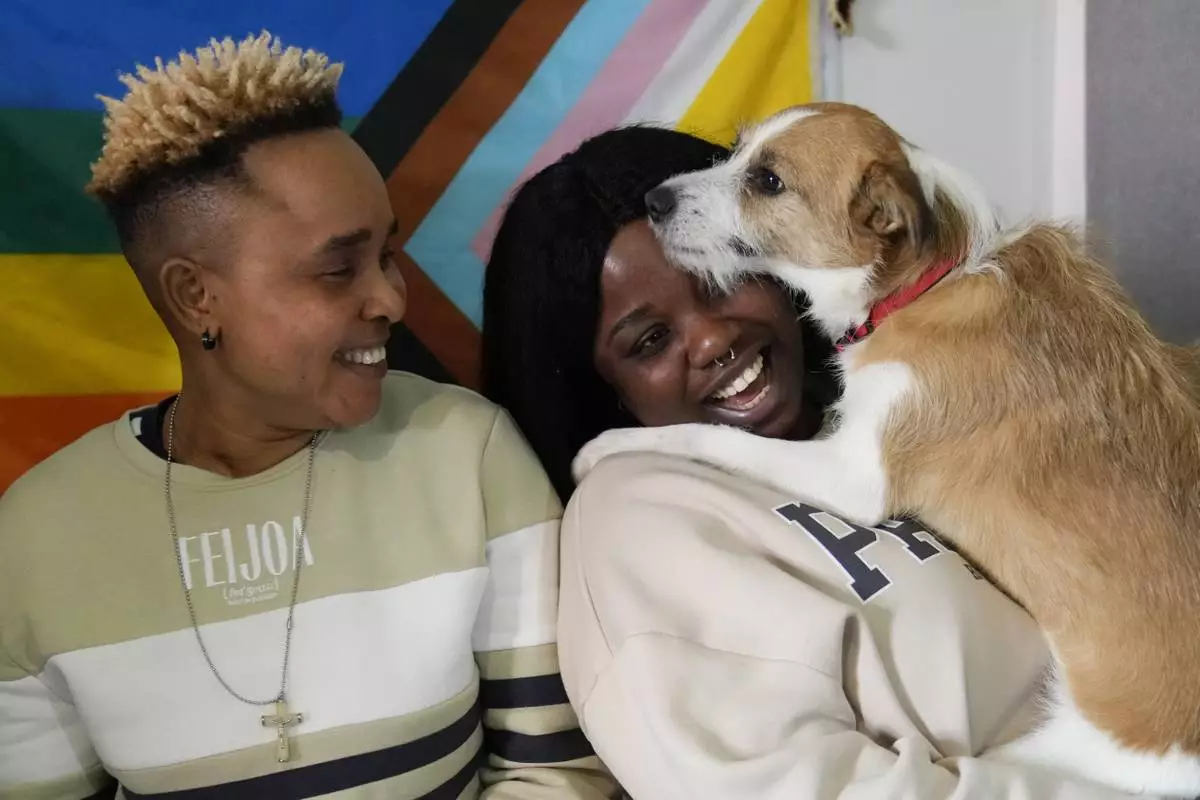
Ella Anthony, left, and her partner Doris Ezuruike Chinons pose for a photo with their dog Paddy, during an interview in their house in Passo Corese, near Rome, Monday, March 11, 2024. Knowing that she faced a possible prison term since Nigeria criminalizes same-sex relationships, Anthony fled with her partner to Libya in 2014 and then Italy, where they both won asylum. Their claim? That they had a well-founded fear of anti-LGBTQ+ persecution back home. (AP Photo/Alessandra Tarantino)


